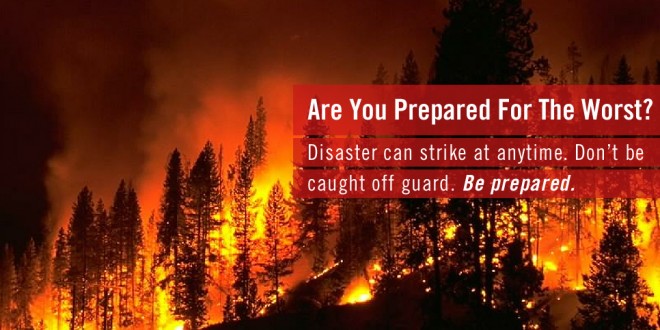
A number of sources can cause wildfires, but humans are by far the largest contributing factor. Natural wildfires typically occur during times of drought combined with lightning strikes that ignite dry grass or brush, but this scenario accounts for less than 10% of all wildfires. The remaining wildfires South Africa are due to some form of human contribution. Below are just some of the ways humans can cause devastating wildfires.
Campfires
Improperly doused or misplaced fires are one of the leading causes of wildfires. Before starting a fire, make sure you check your area’s wildfire alert system to make sure conditions are safe for an open flame. Do not make excessively large fires as these can quickly get out of control (3 ft. wide is the max). Campfires should be surrounded by rocks or stones and be located a minimum of 10 ft away from any potential combustibles. Make sure to only burn firewood and nothing else. Also, keep a shovel and supply of water to quickly put out the fire should the situation arise. Completely extinguish a fire with sufficient dousing and covering with dirt before leaving the campsite.
Fireworks
Every year inappropriately used fireworks cause wildfires. Before using any type of firework, make sure they are legal to use since fireworks laws vary greatly from province to province. It is important to note that it is illegal to use fireworks in forested areas. Only use fireworks on flat surfaces and in areas without any dry grass or trees. Make sure to keep a bucket of water to extinguish all fireworks thoroughly after they are used.
Domestic/Yard Waste Burning
Burning yard waste is a common practice throughout South Africa for removing unwanted yard trimmings or leaves and is often an easier solution than bagging and hauling the waste off to the dumpsite. The danger with burning yard waste comes from winds, which can easily blow burning yard waste and embers far away and easily ignite combustible vegetation. Before burning any yard waste, it is important to check with your local municipality since many have regulations regarding yard waste. In addition, it is best to burn in small batches since they are much easier to control if something should happen. Make sure to never burn in high wind or leave the burning pile unattended.
Cigarettes
To prevent cigarettes from starting wildfires, always dispose of them in places where they cannot be a source of ignition. Placing a cigarette in a cup of water after use is a great way to prevent them from causing fires. Ashtrays work well too, but make sure they are contained and that the still-lit butt cannot blow towards a potential source of ignition. Never simply discard a cigarette on the ground or throw it out a car window.
Vehicles
Regardless of what type of vehicles you use, it is important to be mindful of the role vehicles can play in starting wildfires. Never park any type of vehicle on dry vegetation; the heat from the exhaust can cause it to ignite. Also, make sure any off-road vehicle you use has a working spark arrester as improper ones can cause dry vegetation ignitions.
Preventing Wildfires
Every year wildfires destroy thousands of homes and businesses all over South Africa. This is why it is so important to be aware of the potential for wildfires and to always take steps to prevent a fire from spreading. Before starting any type of fire, it is important to do a couple of things:
- Comply with all local laws and regulations. Many municipalities have laws governing burning of all kinds including time of day, time of year, and what substances can be burned.
Contact Golf911 before burning or starting any open flame fire at your house on (033) 417 2911 - Check the weather. It is never a good idea to engage in any type of burning if there are high winds. Wind can act as both an accelerant and can spread the fire. In addition, check the weather reports for most current fire danger rating system, which will explain any areas’ susceptibility to fires and any extra precautions that may be necessary.
- Only use easily controlled locations for burning. Make sure all campfires occur in fully surrounded fire pits and limit the size of all fires. No matter how something is being burned, it is important to do it in a controlled area. Fires can quickly get out of control, so it is necessary to have it in an area that will provide some containment so it can be extinguished if needed.
- Do not burn anything unusual or combustible. It is common for people to throw garbage or other things into campfires, but these foreign materials can occasionally react violently to fires and lead to a quickly spreading fire. Only burn organic materials such as wood, leaves, or yard waste. Cardboard and paper items are usually acceptable to burn, but make sure it is safe before doing so.
- All fire strategies should include the following components:
- Awareness
It is estimated that 90% of unwanted unnatural fires are caused by human intervention. It is important to know where and when these dangers occur and where the danger areas are.
- Prevention
Prevention and control are the secondary steps in wild fire management and follow directly from awareness. Education and awareness are very important when trying to prevent a wild fire, Educational materials should be provided to staff and family members. It is also important not to allow unsafe, uncontrolled fires, unattended fires or preventing children access to matches.
- Be Prepaired
The best way to be prepared is to comply with the provisions of the National Veld and Forest Fire Act, creating and maintaining adequate fire breaks and to join or form a local Fire Prevention Association (FPA) in your area. The Emergency Response plan should go far beyond showing the shortest exit route.
Should the fire be of the magnitude that threatens the whole area, responsible command should be taken by a responsible person knowing local area conditions. The decision to evacuate an area could have serious consequences. Roads may be unusable due to being engulfed in fire or smoke. It is impossible for a person to outrun a rapidly spreading wildfire, particularly uphill.
- Awareness
 Umvoti Municipality Your Place of Peace & Prosperity
Umvoti Municipality Your Place of Peace & Prosperity
